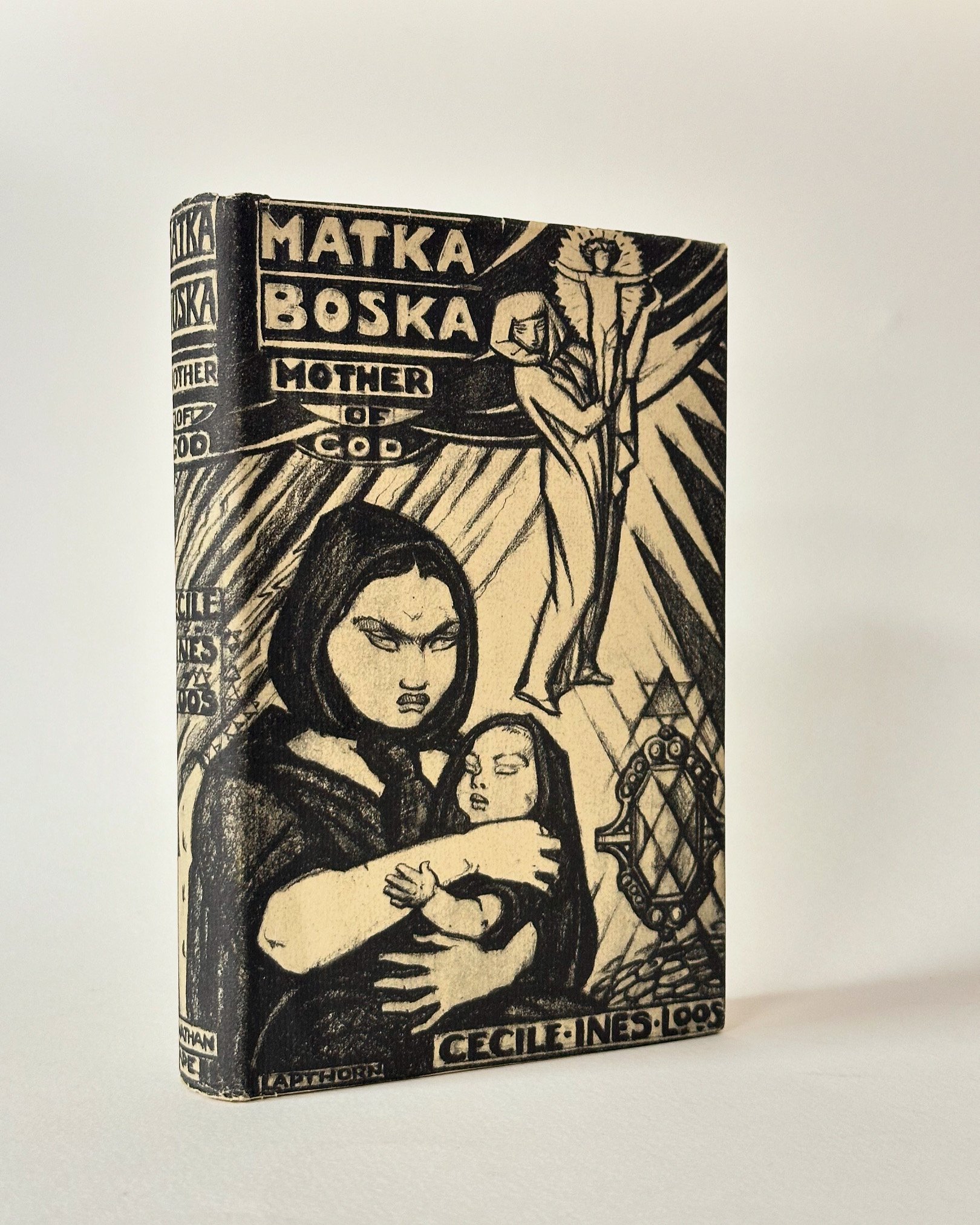 Image 1 of 1
Image 1 of 1


LOOS, Cecile Ines. Matka Boska (Mother of God)
LOOS, Cecile Ines. Matka Boska (Mother of God). London: Jonathan Cape. 1930. 8vo. First English language edition. Trans. from the German by Margaret Goldsmith. Publisher’s cream speckled cloth lettered in blue to the spine, in the vibrant dust jacket by Mabel Lapthorn. With small publisher’s leaflet loosely inserted. Near fine, the cloth clean and bright, the binding tight and square, a few light spots to textblock edges and mild offsetting to endpapers, else fine. The dust jacket price-clipped with very mild rubbing to edges, else fine.
The Swiss author’s debut novel which follows a young Polish peasant girl and her crushing employers on the Estate. Loos was born in Basel to middle-class parents, but was orphaned by the age of 4 and lived in a harsh Bern orphanage. Embittered by the system, her adult life was seldom more joyful despite her hard work as a teacher and in some unskilled jobs, renting out her two rooms and sleeping in her own corridor at some point. She also had an illegitimate child and battled with her own mental wellbeing. Many of her works can be read autobiographically, with dying mothers a constant; the protagonist’s mother dies in the first chapter here. She remains largely unread despite positive contemporary reviews. Equally overlooked might be the jacket artist, Mabel Lapthorn, whose inimitable style often depicts characters and motifs in a brutal monochromatic design. Scarce.
LOOS, Cecile Ines. Matka Boska (Mother of God). London: Jonathan Cape. 1930. 8vo. First English language edition. Trans. from the German by Margaret Goldsmith. Publisher’s cream speckled cloth lettered in blue to the spine, in the vibrant dust jacket by Mabel Lapthorn. With small publisher’s leaflet loosely inserted. Near fine, the cloth clean and bright, the binding tight and square, a few light spots to textblock edges and mild offsetting to endpapers, else fine. The dust jacket price-clipped with very mild rubbing to edges, else fine.
The Swiss author’s debut novel which follows a young Polish peasant girl and her crushing employers on the Estate. Loos was born in Basel to middle-class parents, but was orphaned by the age of 4 and lived in a harsh Bern orphanage. Embittered by the system, her adult life was seldom more joyful despite her hard work as a teacher and in some unskilled jobs, renting out her two rooms and sleeping in her own corridor at some point. She also had an illegitimate child and battled with her own mental wellbeing. Many of her works can be read autobiographically, with dying mothers a constant; the protagonist’s mother dies in the first chapter here. She remains largely unread despite positive contemporary reviews. Equally overlooked might be the jacket artist, Mabel Lapthorn, whose inimitable style often depicts characters and motifs in a brutal monochromatic design. Scarce.
